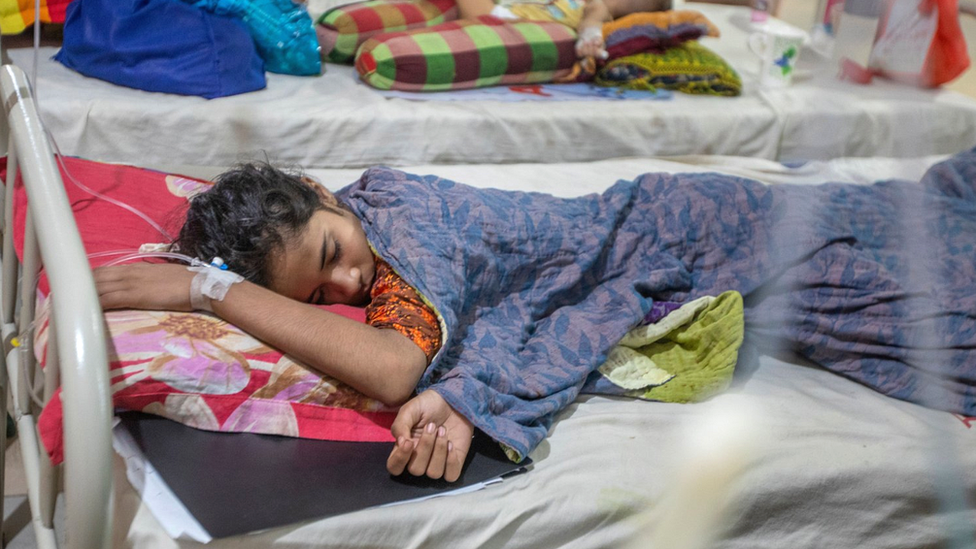Argentina battles dengue surge and repellent shortage
- Published
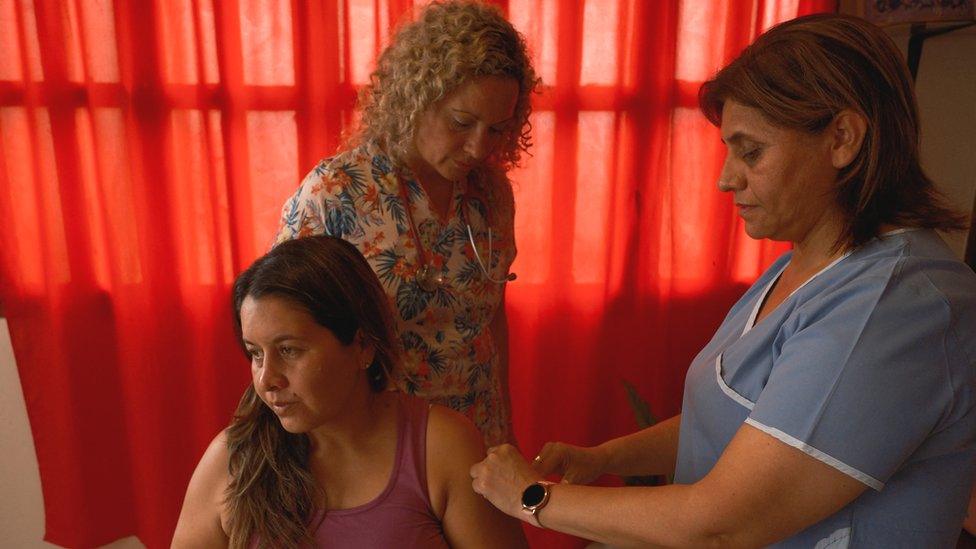
A woman in Argentina gets vaccinated against Dengue
Argentina is facing an insect repellent shortage as the country prepares for its worst-ever dengue season.
Dengue is a mosquito-borne virus that can be deadly, or cause serious illness, in some cases.
A vaccine for dengue has been developed but its rollout is still in early stages and most people still rely on preventative measures to avoid the virus.
Residents report that it is almost impossible to buy repellent.
Many supermarkets and pharmacies have displayed "no repellent" signs, and in the few places where it is still available, especially online, resale prices are astronomical.
The government has attributed the problem to a "bottleneck" that will be corrected in the coming days.
But many citizens, particularly in the capital Buenos Aires, are fearful at a time when hundreds of thousands of Argentines have already been infected.
A shortage of repellents began to be noticed in March.
Sources from one of the companies that produce repellents in the country told BBC Mundo that the shortages were due to a forecast error and that manufacturing the product took months.
Minister of Health Mario Russo told Radio Continental that it was a "problem between supply and demand".
Dengue , externalis most common in tropical and subtropical climates and its symptoms include a high fever, severe headaches, swollen glands and rashes.
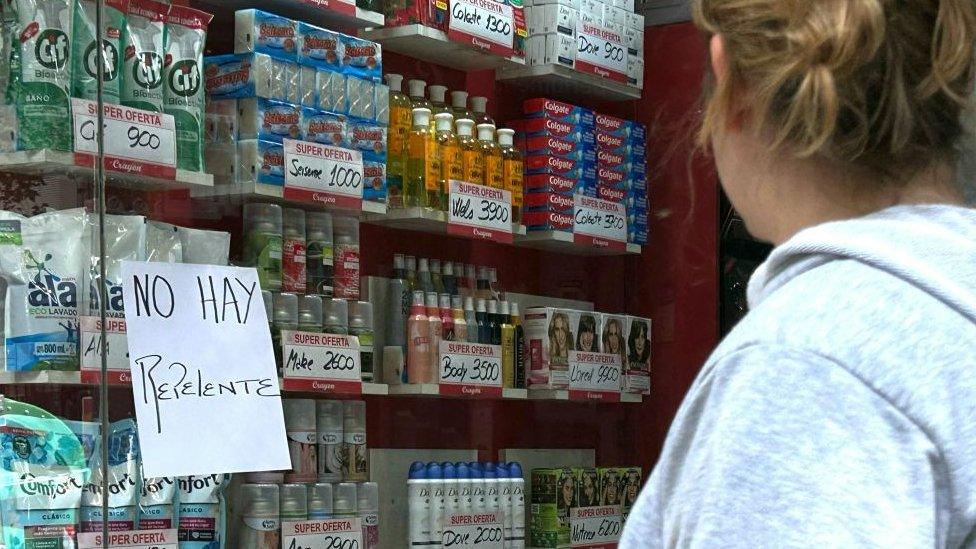
A woman stands in front of a "no repellent" sign at a supermarket
The country's health ministry said on Saturday that Argentina had reported 163,419 cases of dengue fever so far in 2024 and that deaths had been recorded in all age groups - with the highest mortality rate among those over 80 years old.
The ministry has advised people to avoid bites with the use of repellents and seek medical attention if symptoms of the illness develop.
Dengue cases in the Americas rose in the first three months of this year by three times compared with the same period in 2023, according to the Pan American Health Organisation (PAHO).
Brazil, Argentina and Paraguay have been the worst hit, in what PAHO officials have described as potentially the worse outbreak in the Americas to date. These three countries have made up 98% of all cases and 87% of deaths from the virus.
Regional health authorities have recorded more than 3.5 million cases and a thousand deaths.
The UN health agency has warned that global warming and El Nino are contributing to the worst season ever for the virus.
Related topics
- Published6 February 2024
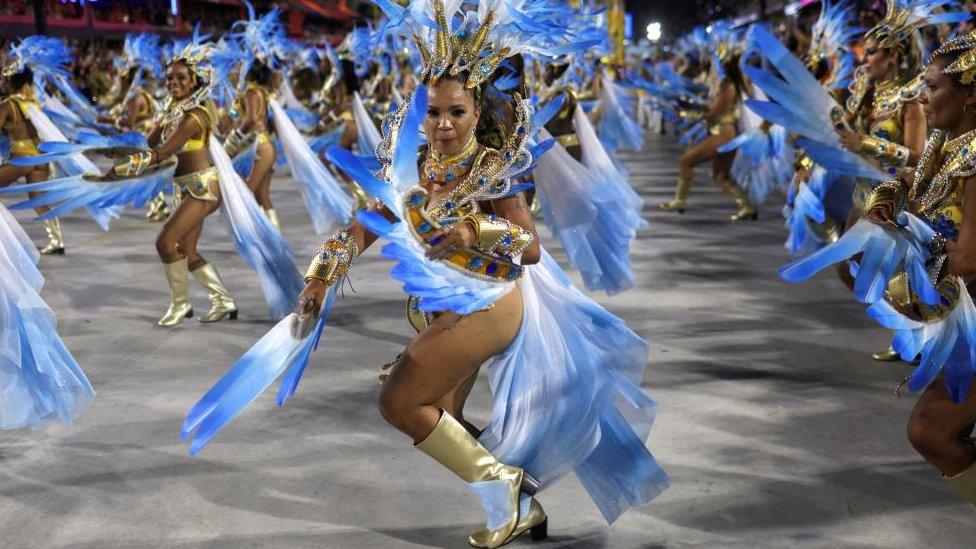
- Published3 December 2023
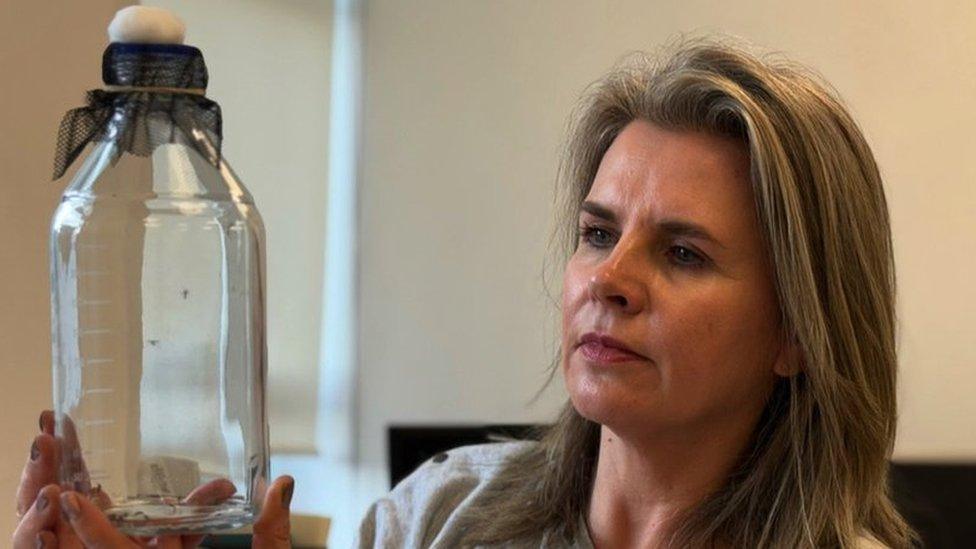
- Published28 September 2023
